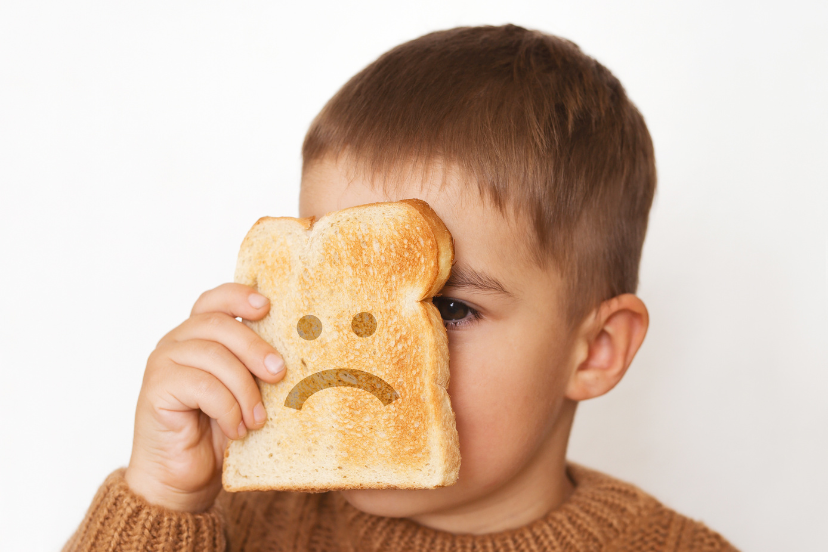Gluten Sensitivity in Children: A Parent’s Guide
Introduction
Gluten sensitivity in children is a topic of increasing concern among parents and healthcare professionals alike. With the rising awareness of gluten-related issues, understanding how it affects young ones is crucial for their well-being. In this comprehensive guide, we delve into the intricacies of gluten sensitivity in children, from its symptoms to management strategies, to empower parents with the knowledge they need to support their child’s health.
Gluten sensitivity, also known as non-celiac gluten sensitivity (NCGS), is a condition characterized by adverse reactions to gluten-containing foods in individuals who do not have celiac disease. While it shares some similarities with celiac disease, NCGS does not involve the same autoimmune response or damage to the small intestine. Instead, it manifests primarily with gastrointestinal symptoms, along with a range of other possible effects on overall health.
What Exactly is Gluten?
Before diving into the intricacies of gluten sensitivity, let’s first understand what gluten is. Gluten is a protein found in wheat, barley, rye, and their derivatives. It provides elasticity to dough, helping it rise and maintain its shape. While it’s a staple in many diets, for some individuals, consuming gluten can trigger adverse reactions.
The Symptoms:
Recognizing the symptoms of this condition in children is crucial for early intervention and management. While the presentation can vary from one child to another, there are common signs to watch out for.
- Digestive Distress: Children with gluten sensitivity may experience digestive issues such as abdominal pain, bloating, diarrhea, constipation, or nausea after consuming gluten-containing foods.
- Skin Problems: Some children may develop skin issues like eczema or dermatitis herpetiformis, a blistering rash associated with gluten sensitivity.
- Behavioral Changes: Gluten sensitivity can also impact a child’s behavior, leading to irritability, mood swings, difficulty concentrating, or hyperactivity.
- Fatigue: Chronic fatigue or low energy levels are common complaints among children with gluten sensitivity.
- Poor Growth: In some cases, gluten sensitivity may affect a child’s growth and development, leading to delayed growth or failure to thrive.
- Headaches: Recurrent headaches or migraines can be a symptom of gluten sensitivity in children.
Diagnosing the Condition in Children
Diagnosing gluten sensitivity in children can be challenging due to the lack of specific diagnostic tests. Unlike celiac disease, there are no biomarkers or definitive tests for NCGS. Instead, diagnosis often relies on a combination of clinical evaluation, symptom monitoring, and exclusion of other conditions.
Diagnostic Process
The diagnostic process for this condition in children typically involves the following steps:
- Medical History: The healthcare provider will review the child’s medical history, including symptoms and family history of gluten-related disorders.
- Physical Examination: A thorough physical examination may be conducted to assess overall health and identify any signs of nutritional deficiencies or other complications.
- Elimination Diet: To determine if gluten is the culprit behind the child’s symptoms, a healthcare provider may recommend an elimination diet. This involves removing gluten-containing foods from the child’s diet for a period of time and monitoring symptom improvement.
- Gluten Challenge: Following the elimination period, a gluten challenge may be conducted to assess the child’s response to gluten reintroduction.
Managing the Condition in Children
Once diagnosed, managing gluten sensitivity in children involves adopting a gluten-free lifestyle and making dietary modifications to ensure optimal health and well-being. Here are some strategies for managing gluten sensitivity in children:
- Gluten-Free Diet: The cornerstone of managing gluten sensitivity is adhering to a strict gluten-free diet. This means avoiding all sources of gluten, including wheat, barley, rye, and their derivatives.
- Reading Labels: Teaching children and caregivers how to read food labels is essential for avoiding hidden sources of gluten in packaged foods.
- Meal Planning: Planning gluten-free meals and snacks can help ensure that children have access to nutritious, safe foods at home and school.
- Educating Others: Educating teachers, caregivers, and other family members about gluten sensitivity and the importance of avoiding gluten cross-contamination is crucial for the child’s safety.
- Seeking Support: Joining support groups or connecting with other families dealing with gluten sensitivity can provide valuable support and resources.
- Regular Monitoring: Regular check-ups with healthcare providers are essential for monitoring the child’s growth, nutritional status, and overall health.
Frequently Ask Questions:
1. What causes gluten sensitivity in children?
Gluten sensitivity is believed to result from a combination of genetic predisposition and environmental factors, though the exact cause remains unclear.
2. Is there a genetic component to gluten sensitivity?
While the exact genetic factors contributing to gluten sensitivity are still being studied, there appears to be a genetic predisposition in some individuals.
3. Can children outgrow gluten sensitivity?
While celiac disease is a lifelong condition, some children may outgrow gluten sensitivity as they get older. However, it’s essential to consult with a healthcare provider before reintroducing gluten into the diet.
4. Are there any long-term complications associated with gluten sensitivity in children?
Untreated gluten sensitivity can lead to nutritional deficiencies, stunted growth, and other complications. However, with proper management, most children can lead healthy, fulfilling lives.
5. Can gluten sensitivity in children be managed with medication?
Unlike celiac disease, there are no medications specifically for treating gluten sensitivity. Management primarily involves dietary modifications and lifestyle changes.
6. How can I ensure my child gets enough nutrients on a gluten-free diet?
With careful meal planning and attention to nutrient-rich gluten-free foods, it’s possible for children with gluten sensitivity to meet their nutritional needs. Consulting with a dietitian can provide personalized guidance.
Conclusion
In conclusion, gluten sensitivity in children is a complex yet manageable condition that requires vigilance, education, and support from caregivers and healthcare providers. By understanding the symptoms, diagnosis, and management strategies outlined in this guide, parents can empower themselves to advocate for their child’s health and well-being. Remember, early intervention and adherence to a gluten-free lifestyle are key to helping children with gluten sensitivity thrive and reach their full potential.




